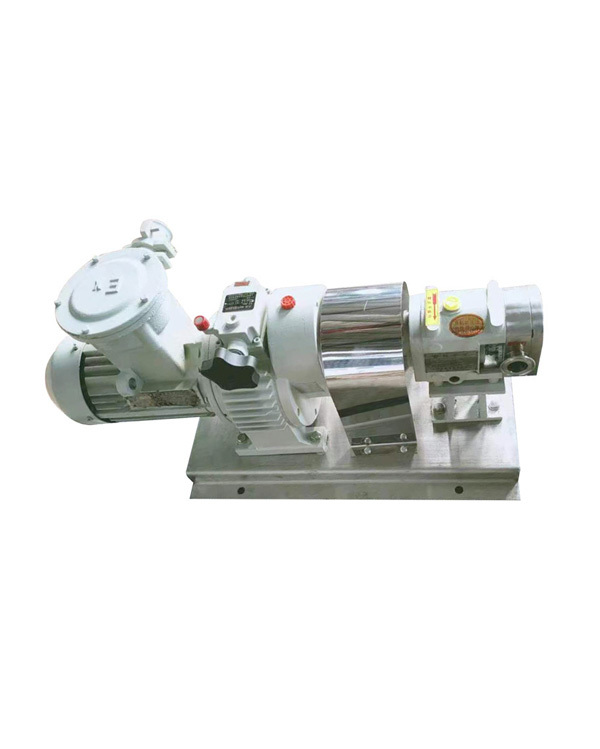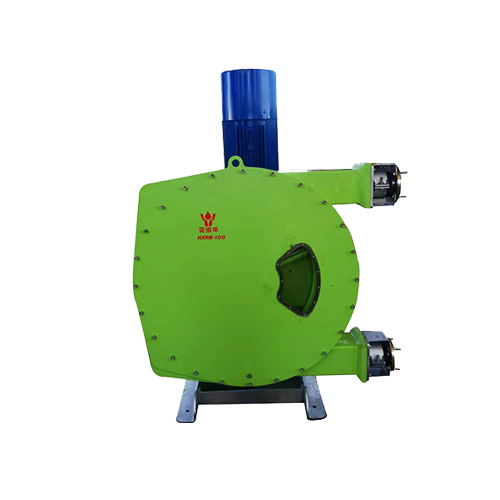Why Choose Rotary Lobe Pumps for Handling Viscous Syrups and Molasses?
Mar 30,2025

Why Choose Rotary Lobe Pumps for Handling Viscous Syrups and Molasses?
Understanding Rotary Lobe Pumps
Rotary lobe pumps are a type of positive displacement pump that excels in transferring fluids with varying viscosities, including viscous syrups and molasses. Unlike centrifugal pumps, which rely on high-speed impellers, rotary lobe pumps use two or more lobes that rotate in a synchronized manner to create a cavity that moves the fluid. This design minimizes shear and maintains the integrity of delicate products, making rotary lobe pumps an ideal choice for various applications in food processing, pharmaceuticals, and chemical industries.
How Do Rotary Lobe Pumps Work?
The operation of rotary lobe pumps is straightforward yet innovative. When the lobes rotate, they create a vacuum that draws fluid into the pump chamber. As the lobes continue to rotate, the fluid is pushed through the pump and out of the discharge port. This movement is consistent and reliable, providing a steady flow rate that is crucial when handling thick fluids like syrups and molasses.
Key Components of Rotary Lobe Pumps
1. **Lobes**: The heart of the pump, typically made from materials like elastomers or stainless steel, designed to handle specific fluid characteristics.
2. **Pump Body**: The casing that houses the lobes, ensuring that the flow remains contained and controlled.
3. **Seals**: Essential for preventing leakage, ensuring that the pump operates efficiently and safely.
4. **Drive Mechanism**: Responsible for the rotation of the lobes, often powered by electric motors or gearboxes.
The Benefits of Using Rotary Lobe Pumps for Viscous Fluids
When it comes to handling viscous syrups and molasses, rotary lobe pumps offer several distinct advantages:
1. Gentle Handling of Sensitive Materials
One of the primary concerns when pumping viscous fluids is the potential for shear damage. Rotary lobe pumps provide a gentle pumping action that preserves the texture and quality of delicate materials. This is especially crucial in food processing, where maintaining product integrity is non-negotiable.
2. High Efficiency and Consistency
Rotary lobe pumps are designed to deliver consistent flow rates, crucial for processes that require precision. Their ability to handle varying viscosities without compromising performance ensures that production processes remain efficient and reliable.
3. Versatility Across Industries
These pumps are not limited to just one application. Rotary lobe pumps are versatile tools found in various sectors, including:
- **Food and Beverage**: Ideal for transferring syrups, sauces, and other viscous materials.
- **Pharmaceutical**: Perfect for handling gels, creams, and other sensitive fluids.
- **Chemical Processing**: Suitable for transporting viscous chemicals and slurries.
4. Easy Maintenance and Cleaning
Maintenance is a crucial factor in any pumping system. Rotary lobe pumps are designed for easy disassembly and cleaning, which is particularly important in hygienic applications like food and pharmaceuticals. This ease of maintenance helps reduce downtime and ensures compliance with health standards.
5. Durable and Long-lasting Design
Manufactured from high-quality materials, rotary lobe pumps are built to withstand wear and tear from abrasive or corrosive fluids. Their robust construction ensures a longer lifespan, providing a reliable solution for businesses that rely heavily on these pumps for their operations.
Applications of Rotary Lobe Pumps in Viscous Fluid Transfer
The versatility of rotary lobe pumps makes them suitable for various applications, particularly when handling viscous syrups and molasses. Here are some notable uses:
1. Food Industry Applications
In the food processing sector, rotary lobe pumps are used for pumping:
- **Syrups**: Whether it’s maple syrup or molasses, these pumps maintain quality without introducing air into the product.
- **Sauces**: Ideal for thick sauces, ensuring efficient transfer during processing.
2. Pharmaceutical Industry Applications
In pharmaceuticals, rotary lobe pumps are employed for transferring:
- **Gels and Creams**: These products require careful handling to avoid damage, and rotary lobe pumps are designed to provide the necessary gentleness.
- **Active Ingredients**: Handling viscous compounds without loss of quality or efficacy.
3. Chemical Processing Applications
In chemical applications, rotary lobe pumps are effective for:
- **Viscous Chemicals**: Handling thick and sticky substances with ease.
- **Slurries**: Ensuring consistent flow rates for solid-liquid mixtures.
Factors to Consider When Choosing Rotary Lobe Pumps
Selecting the right rotary lobe pump for handling viscous materials requires careful consideration of several factors:
1. Viscosity of the Fluid
Understanding the viscosity of the fluid you plan to pump is crucial. Rotary lobe pumps are available in various designs, each suited for different viscosity levels.
2. Flow Rate Requirements
Determine the required flow rate for your application. Rotary lobe pumps can be customized to meet specific flow demands, ensuring that production processes remain efficient.
3. Material Compatibility
Ensure that the materials of the pump components are compatible with the fluids being handled. This is especially important in food and pharmaceutical applications to avoid contamination.
4. Maintenance and Service Needs
Evaluate the ease of maintenance and serviceability of the pump. A design that allows for easy cleaning and maintenance can save time and reduce operational costs.
5. Budget Considerations
While cost should not be the only factor in choosing a pump, it is essential to consider the overall budget for your project. Investing in a reliable rotary lobe pump can lead to long-term savings through reduced maintenance and downtime.
FAQs about Rotary Lobe Pumps for Viscous Fluids
1. What types of fluids can rotary lobe pumps handle?
Rotary lobe pumps can handle a wide range of fluids, including viscous syrups, slurries, gels, and other sensitive materials.
2. How do rotary lobe pumps prevent shear damage?
The design of rotary lobe pumps minimizes shear forces by providing a gentle pumping action, which is crucial for maintaining the integrity of sensitive fluids.
3. Are rotary lobe pumps easy to maintain?
Yes, rotary lobe pumps are designed for easy disassembly and cleaning, which helps reduce downtime and ensures compliance with hygiene standards.
4. Can rotary lobe pumps handle varying viscosities?
Absolutely! Rotary lobe pumps are known for their ability to handle a wide range of viscosities while maintaining consistent flow rates.
5. What industries commonly use rotary lobe pumps?
Rotary lobe pumps are widely used in food and beverage, pharmaceutical, and chemical processing industries due to their versatility and efficiency.
Conclusion
In conclusion, rotary lobe pumps are an excellent choice for handling viscous syrups and molasses due to their gentle operation, efficiency, and versatility across various industries. Their unique design minimizes shear damage, ensuring that sensitive materials retain their quality and integrity. When selecting a rotary lobe pump, consider factors such as fluid viscosity, flow rate requirements, and maintenance needs to find the perfect fit for your application. Investing in rotary lobe pumps can lead to long-term benefits, making them a valuable asset in any operation dealing with viscous fluids. Choose rotary lobe pumps to enhance your production processes and ensure the highest standards of quality in your products.
Contact Us
E-mail :
sales@yaquanpump.com
service@yaquanpump.com
Phone/WhatsApp:
+44 7301702546
+63 9452052801
Address:
Room B208, Building 2, North Hongqiao Songri Center, No.215 Gaochao Road, Jiading District, Shanghai









